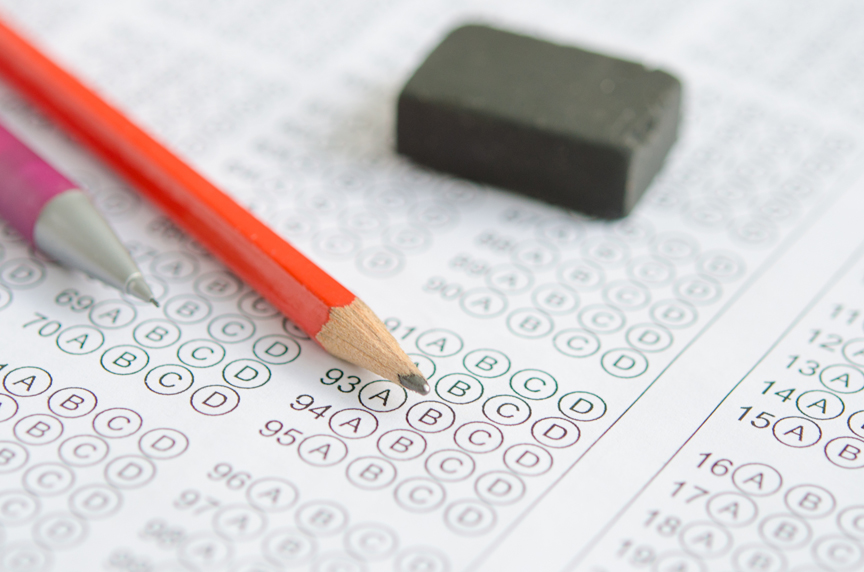- Behavior
- Education
- Parenting
How to tell if your young child is feeling stress

In this article, you’ll find answers to questions like:
1. How to detect if my child is stressed?
2. How to offer support?
Changes at home and school such as moving, family or financial problems - or even advancing to another grade - can stress your child, says Dr. Sarah Siciliano-Hartt, a child psychologist in Boca Raton. Another cause that can affect behavior is problems with friends, she says.
1. HOW TO DETECT IF MY CHILD IS STRESSED?
Ask your child what’s going on but also consult the teacher, parents of your child’s friends and the friends themselves, she says. Look at the pictures your child may be drawing, as they may offer clues. Art is a great way for your child to express anger, fear or frustration, Siciliano-Hartt says. Look for behavioral clues. When stressed, children are more likely to act differently rather than talk about it.
Take every opportunity to listen to your child. Eat together and talk during breakfast, dinner and even snacks before after-school activities. “You might not be talking directly about issues you, or they, are worrying about, but if something is going on, you’ll know,” says Deborah Newell, program director of Positive Parenting Program, known as Triple P, at Community Partners of South Florida.
An important talk doesn’t necessarily need a lot of time. “If your child needs you, give them two or three minutes now,” Newell says. “If you constantly tell them, ‘Later, not right now,’ that’s when they develop patterns of interrupting, or they start acting up to get your attention. I wish I had known that when I was raising kids.”
Also, take every opportunity to communicate with the teacher before an issue arises. If your child uses an agenda, check it for homework assignments and notes from the teacher. “The minute something starts going wrong, the teacher will focus on that, and it can be downhill for the child,” she says.
Don’t wait for a crisis. Be proactive by texting or emailing your child's teacher to ask how your child is doing, and build on that, Newell says.
2. HOW TO OFFER SUPPORT?
“Your child may need extra support from you too,” says Terri Mortensen, a clinical psychologist working in South Florida. She points out the teacher may send home a red card or note. “You can spend quality time with them, reading books, talking about feelings, coloring. It can make all the difference.”
For children who recently immigrated to the United States, going to school here is a transition all its own, says Sara Selznick, former senior director of programming at the Achievement Centers for Children and Families in Delray Beach.
People who grew up in different cultures don’t always feel comfortable seeking help from outside the family, Newell says. “It can be a stigma, so we concentrate on whatever is working,” she says. “We are geared at making very small changes that make a huge difference, like talking about the positive things the child is doing.”
Help is available if language barriers prevent parents and teachers from communicating. The Palm Beach County School District, for example, offers English classes at more than 30 locations throughout the year. For registered students, there is additional help with career counseling, family literacy and students with disabilities. Call 561-649-6010. BRIDGES of Palm Beach County, with 10 locations throughout the county, also offers classes in English.
SOURCES:
• Sara Selznick, former senior director of programming, Achievement Centers for Children and Families
• Terri Mortensen, a psychologist in South Florida and former Child and Family program manager, Faulk Center for Counseling
• Deborah Newell, Triple P program director, Community Partners of South Florida
• Dr. Sarah Siciliano-Hartt, former child psychologist in Boca Raton
You May Also Like
-
- Behavior
- Education
- Health
Is your 8- to 11-year-old sleeping enough? And how does it help?
Nine to 12 hours a day are recommended for children ages 8 to 11. Read on for more expert sleep advice. …
Read More -
- Health
- Parenting
- Safety
Tell kids to use their heads — wear a helmet
Bicycle helmets can reduce the chances of head injury by 85 percent and severe brain injury by 88 percent. See more expert tips here to prevent a bike accident. …
Read More
Related resources
-
- Behavior
- Education
- Health
School District of Palm Beach County
School Counseling — fosters academic achievement, college and career readiness, and social/emotional development
561-434-8233 Website -
- Other
211 Palm Beach Treasure Coast
A helpline providing information, assessment, referral, telephone counseling, crisis intervention and suicide prevention, as well as online chats from 10 a.m. to 8 p.m. daily
2-1-1 Website Email -
- Behavior
- Health
- Parenting
Boys Town South Florida
Based in West Palm Beach, support, services and information for at-risk children and their families in South Florida
561-612-6000 Website -
- Behavior
- Health
- Parenting
Children's Behavioral Health Collaborative - Palm Beach County
A collaboration of five local mental health agencies that assess and treat children's serious behavioral, emotional or mental health problems
561-244-9499 Website -
- Education
- Parenting
- Things to do
BRIDGES of Palm Beach County
Ten neighborhood hubs help parents raise children healthy, safe and strong
561-740-7017 Website
